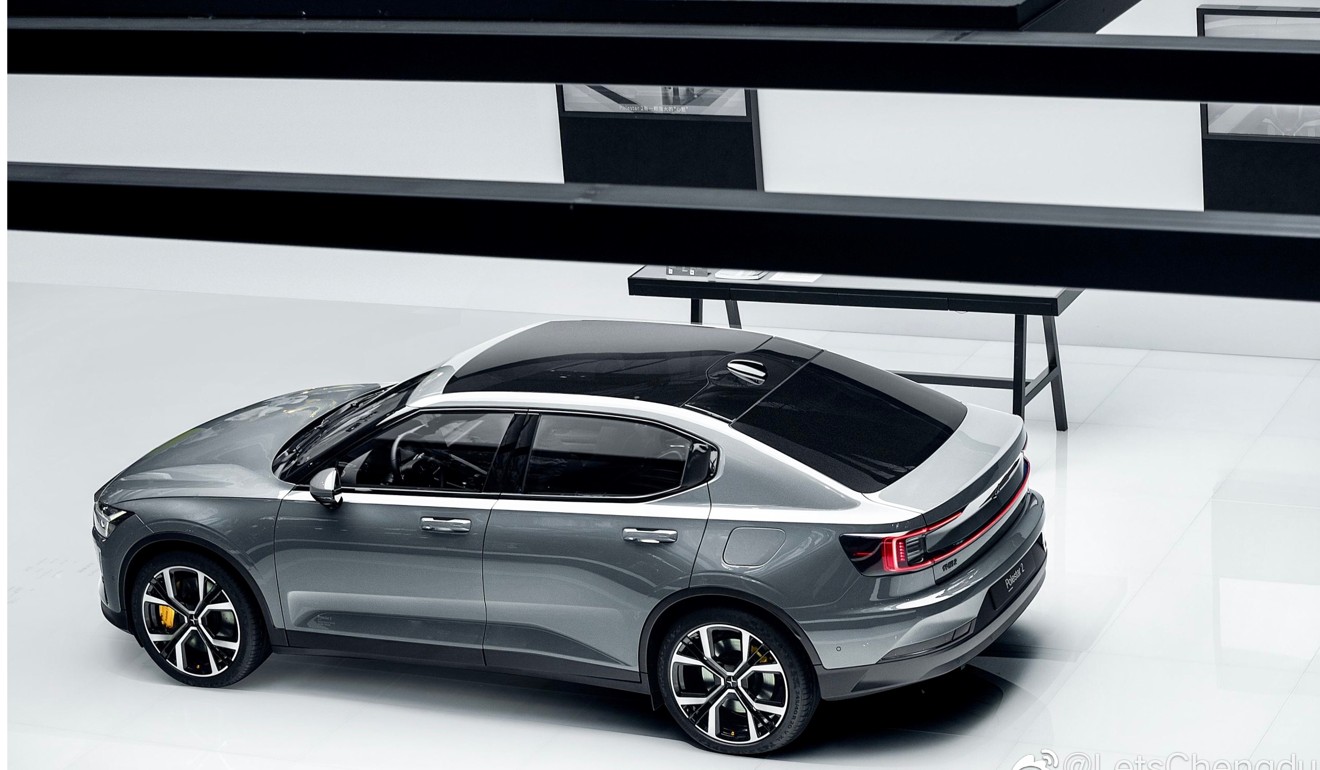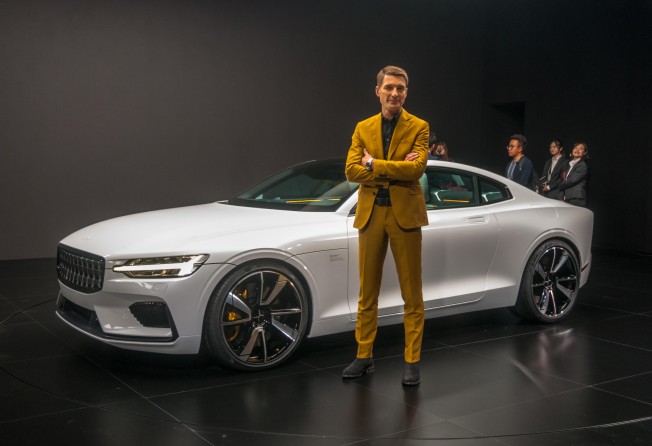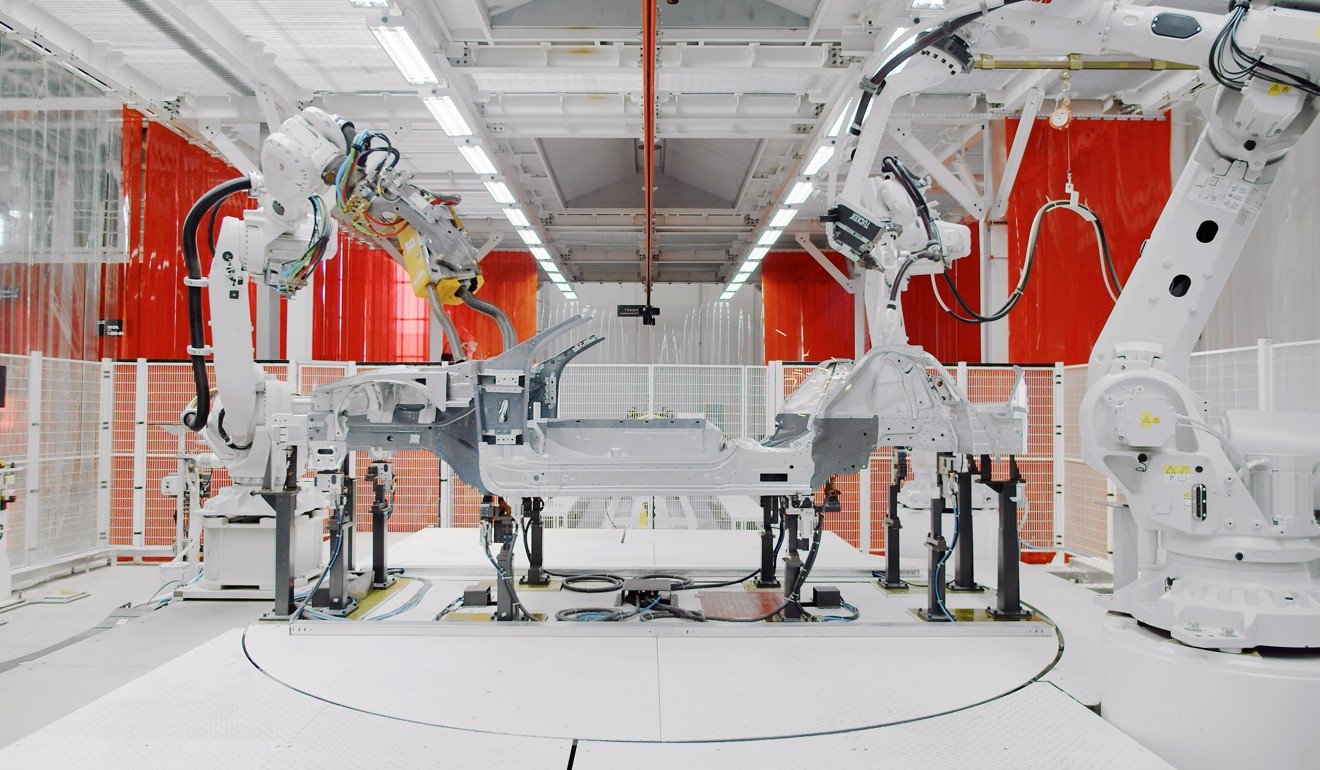
Volvo’s electric car brand Polestar joins a crowded market amid slowing sales in China
- Polestar opens first China plant in Chengdu as it prepares to deliver its first electric car by the end of the year
- Company on course to open its second plant by 2020, says CEO Thomas Ingenlath

Polestar, Volvo Cars’ high-performance electric vehicle brand, will stick to its production plan in China as it joins the fray against global rivals in a slowing market.
Thomas Ingenlath, chief executive of Polestar, told the South China Morning Post that the company was unfazed by the recent downturn in the mainland, the world’s largest new-energy vehicle market, and will open its second plant in China next year.
“This is the cycle,” he said. “Short-term ups and downs shouldn’t worry us.”
Polestar started operations of its first production facility in Chengdu, capital of China’s southwest province of Sichuan, on Tuesday, taking a big step in competing with international brands such as Tesla in the huge mainland market.

The plant will produce Polestar 1 model, a luxury four-seater hybrid coupe.
Ingenlath said the first batch of Polestar 1 cars would be delivered to customers before the end of 2019.
The company has received pre-orders for 600 units.
Sales of new-energy vehicles (NEV) in China saw a year-on-year decline of 4.2 per cent to 68,800 units in July, according to the China Passenger Car Association.
It was the first time that sales of NEVs had fallen in the country. Electric and hybrid vehicles were the fastest-growing segment, buoyed by government’s incentives such as cash subsidies and free distribution of car plate licences.
In June, China’s NEV sales had jumped 99 per cent to 134,000 units.
Beijing announced in March it would slash subsidies on NEVs as part of a policy to improve standards in the green car market.
Subsidies on NEVs with a driving range of 250km to 300km were lowered to 18,000 yuan (US$2,510) from 34,000 yuan.
As the new policy took effect in July, thousands of customers front-loaded NEVs between March and June.

The China Association of Automobile Manufacturers, a government-backed industry consortium, recently slashed its forecast for NEV sales in 2019 to 1.5 million units from 1.6 million.
Ingenlath said its second production facility for the Polestar 2, an all-electric five-door fastback “is not far away”, and will be operational in 2020.
Volvo Cars bought Polestar in 2015 and turned it into an electric car brand.
On the mainland, Volvo and its mainland parent Zhejiang Geely Holding pledged an investment of 5 billion yuan into high-performance electric cars via a joint venture to support Polestar’s development.
Polestar will take on US bestselling electric vehicle maker Tesla in China where sales of environment friendly NEVs are presently dominated by home-grown players such as BYD.
Tesla is likely to start building its Model 3 cars at Gigafactory 3 at Lingang, Shanghai, its first plant outside the US, later this year.
Tesla’s US$2 billion plant in Lingang has a capacity to make 250,000 electric vehicles a year.